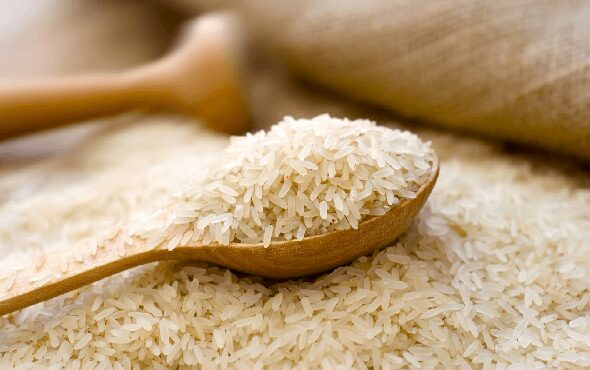The Rice Processors Association of Nigeria (RIPAN) has warned Nigerians about the dangers associated with the consumption of imported rice.
The Director-General of RIPAN, Andy Ekwelem, issued the warning on Tuesday while briefing newsmen on the negative impact of reopening the Nigerian borders that were shut in 2019 on President Muhammadu Buhari’s orders.
Advertisement
Ekwelem said the volume of paddy rice produced by Nigerian farmers began to decline after the borders were reopened in 2022 and smuggling commenced again in earnest, causing a drop in the volume of paddy offtake by the rice processors and millers.
He said some of the rice smuggled into the country have expired, stressing that some have stayed for as long as five to ten years and are no longer healthy for human consumption but should be used as animal feed.
The DG said, “The smuggled rice is not healthy for consumption, the biggest challenges consumers have to this is the preservatives used in warehousing and storing of this rice in Benin Republic, Niger Republic, and Cameroon.
“This is because we have refused them to come into the country, so they will try storing them against weevils, these chemicals now affect the naturality of the product.
Advertisement
“Some of this rice has stayed five to ten years, which has scaled its duration period. But they will be rebranded and given to wholesalers at an appealing price and conditions for sale. Mind you this rice in question has turned to animal stock” he said.
Ekwelem further revealed that those patronizing foreign rice brands are empowering the employment sectors of the countries where they are produced.
He noted that during the COVID-19 pandemic, Nigerian farmers produced as much as 8.2 million tons of paddy rice and another 8.4 million tons in 2021. He claimed that medium-size mills and the cottage mills scattered across the country are the single largest employers of labour in Nigeria that have provided jobs for over 13 million people.
According to Ekwelem, the employment cuts across direct staff, casual workers, haulage service providers, agrochemical and input suppliers, and millions of smallholder rural farmers who are made up of majorly youths and women.
He lamented that the number of people engaged by the rice mills has declined, and may worsen if the government does not intervene.
Advertisement
He urged the new administration to reposition the Nigeria Customs Services for effective manning of the borders and continue the laudable policies of the current administration.
In August 2019, Nigeria closed its land borders over the proliferation of illegally imported drugs, small arms, and agricultural products into Nigeria from neighboring West African countries.
Three years after, President Buhari approved reopening of the borders, including Seme in Lagos, Illela in Sokoto, Maigatari in Jigawa, Mfum in Cross River, Idiroko border post, Ogun state, Jibiya border post, Katsina, Kamba border post, Kebbi and Ikom border post, Cross River.



